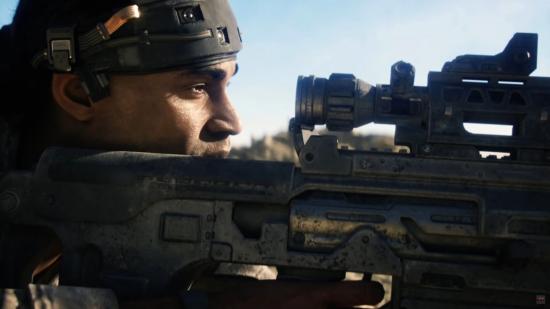It wasn’t a great week if you were a former professional wrestler who believed your likeness was being used in a videogame without your permission. In two separate cases in different courts, WWE hall of famer ‘Booker T’ Huffman and former pro wrestler and football player Lenwood Hamilton had their claims of copyright infringement dismissed.
Taking the latter case first, Hamilton had claimed in 2017 that Epic Games and Microsoft copied his likeness in Gears of War – specifically, Hamilton said he was the basis for Augustus ‘Cole Train’ Cole, and that the Gears of War character copied his habit of wearing derby hats and a gold tooth. In the Gears fiction, Cole is a former thrashball player who once played for the Philadelphia Eagles as a defensive lineman – just like Hamilton did.
His case was first heard by the US District Court for the Eastern District of Pennsylvania, which sided against him with Epic and Microsoft, finding that their use of his likeness was ‘transformative’ enough to make Hamilton’s claim meritless. He appealed that decision to the Third Circuit, which also decided not to help him out. That left him with the last resort of appealing to the US Supreme Court.
Unfortunately for Hamilton, this week the Supreme Court opted to deny him a writ of certiorari – which means the court simply declined to hear his case at all, leaving the judgement of the Third Circuit in place. Epic Games, Microsoft, and Cole Train are all off the hook for that one.
Booker T, meanwhile, was in court to argue that the Call of Duty: Black Ops 4 character David ‘Prophet’ Wilkes was an unauthorized likeness, and he had filed a civil suit against Activision Blizzard, Activision Publishing, and Major League Gaming alleging that the FPS game’s character was based on the Last Sentry comic book version of Huffman’s character ‘G.I. Bro.’
Who wants a G.I. Bro comic book?? pic.twitter.com/mnbd90PizA
— Booker T. Huffman (@BookerT5x) May 18, 2015
A jury in Texas sided with Activision, however, which claimed the similarities between the Booker T character and Call of Duty’s Prophet were coincidental, not extending beyond their both being Black men with military service records and dreadlock hairstyles. A major element of Prophet’s background, notably, is that the majority of his body has been replaced with cybernetics – which was never part of the G.I. Bro character’s backstory.
